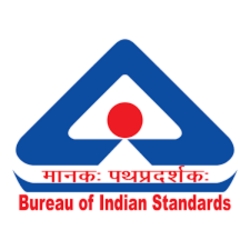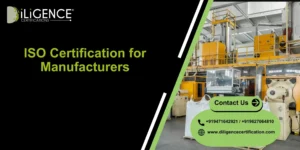- BIS Certification for Stainless Steel Bars and Flats IS 6603:2001 is a compulsory product standard for a regulated area in India.
- The certification is a kind of guarantee that stainless steel bars and flats are conforming to the established chemical and mechanical requirements.
- The BIS Certification for Stainless Steel Bars and Flats IS 6603:2001 scheme involves filing an application, undergoing an audit, and laboratory testing.
- The majority of the time that this certification is delayed is due to gaps in documentation and non-compliance in testing.
- BIS Certification for Stainless Steel Bars and Flats IS 6603:2001 allows manufacturers to earn the trust of OEMs and government buyers.
Introduction

We had a case of a stainless steel rolling unit in Pune that lost a railway major order after they do not have BIS Certification for Stainless Steel Bars and Flats IS 6603:2001. Their material quality was good but the buyer could not use their products due to the lack of certification. Cases like this metal companies’ manufacturers are now common. The standard has become a minimum level for anyone providing bars and flats which are used in structural, automotive, and engineering applications. Knowing what the certification requires and getting the factory ready can help you avoid production stoppages that are costly and disruptions of the supply-chain. Bureau of Indian Standards
What is IS 6603:2001?
IS 6603:2001 identifies the quality of stainless steel bars and flats as per Indian Standard. It determines the minimum chemical, mechanical and dimensional requirements that manufacturers have to conform to, before they can supply these products to the regulated sectors.
Key Points:

- It is applicable to hot-rolled and forged stainless steel bars and flats.
- It defines the limits of chemical composition for various grades of stainless steel.
- It specifies the requirements of tensile strength, hardness, and elongation.
- It also provides for the tolerances in dimensions, straightness, and surface finish.
- It is used as the standard for BIS certification and ISI marking in India.
Why is BIS Certification Mandatory
BIS certification is a must due to the fact that stainless steel bars and flats are the parts which are generally put in life-dependent or safety-critical situations. So, the devices or equipment used in these areas must have safety, performance, and traceability features and that is why it cannot be compromised. To ensure that substandard materials do not get into the market, the government has imposed the requirement for compliance with IS 6603:2001.
Key Points:
- Mandatory under BIS (Conformity Assessment) Rules for regulated products.
- Ensures the stainless steel meets chemical and mechanical requirements.
- Required by government tenders, railways, metro, defence, and major OEMs.
- Prevents circulation of unsafe or low-grade steel in the market.
- Provides legal approval for marking and selling products as per IS 6603:2001.
Importance and Benefits of BIS Certification
| Importance | Benefits |
| Ensures stainless steel meets IS 6603:2001 standards | Better acceptance by OEMs and government buyers |
| Maintains safety and performance in critical applications | Reduced product failures and quality disputes |
| Provides regulatory compliance for regulated sectors | Access to larger and higher-value projects |
| Builds trust in material consistency | Stronger long-term customer relationships |
| Controls entry of sub-standard products in the market | Improves brand credibility with ISI marking |
Step-by-Step Process of BIS Certification

Step1:Documentation
- Collect required business and product documents
- Ensure compliance with BIS standards
- Prepare technical files and product details
- Verify authenticity of all submitted records
Step2:Product Testing
- Send product samples to a BIS-recognized lab
- Conduct tests as per relevant Indian Standards (IS)
- Obtain an official test report
- Fix issues if the product fails and retest
Step3:Application Submission
- Fill out the BIS registration form online
- Upload documents and test reports
- Pay the required government fees
- Track application status on the BIS portal
Step4:Scrutiny and Inspection
- BIS reviews documents and test reports
- Factory inspection may be conducted (if applicable)
- Clarifications or additional documents may be requested
- Compliance is verified before approval
Step5:Grant of License
- BIS issues the registration certificate
- Unique R-number or license number is provided
- Manufacturer can affix the BIS mark on products
- Renewal required as per BIS validity timeline
Documents Required for BIS Certification
| Category | Documents Required |
| Business Documents | Business license/registration, ISO certificate, organizational details |
| Manufacturer Details | Factory layout, process flow chart, machinery list, production details |
| Product Documents | Product specifications, component list, user manual, model details |
| Testing Documents | Test report from BIS-recognized lab, sample details, test request form |
| Legal & Compliance | Authorization letter, brand ownership proof, trademark certificate (if any) |
| Import/Foreign Manufacturer (If applicable) | AIR (Authorized Indian Representative) details, contract agreement, overseas manufacturer documents |
Timelines, Costs, Validity & Renewal
- Timelines: Usually from 20 to 30 days, with only 7-15 days for the testing.
- Costs: The cost of the government and the test varies depending on the product. There can be some additional charges though.
- Validity: The validity period is 2 years in most situations.
- Renewal: The renewal is done before the expiration; there should be updated documents/tests; the renewal
Why Choose Diligence Certifications
- Expert team with strong BIS and regulatory knowledge
- Fast, streamlined processing to reduce approval delays
- Accurate documentation and testing coordination
- Transparent guidance with clear communication
- High success rate and complete end-to-end support
Conclusion
BIS certification for stainless steel bars and flats as per IS 6603:2001 has essentially been mandated for those who supply the engineering, railway, metro, and OEM sectors. It is a confirmation that the material is of a specified quality and can be relied upon to perform safely in critical applications. Companies that obtain this certification have a stronger presence in the market and find it easier to access projects with high commercial potential. If you are going to submit an application, it will be beneficial for you to prepare your paperwork, set up the testing, and be ready for the audit in advance so that you will not have any delays when getting your certification.
Frequently Ask Questions
BIS Certification for Stainless Steel Bars and Flats IS 6603:2001?
BIS Certification is a prerequisite that confirms a stainless steel bar and flat conform to the chemical, mechanical and dimensional requirements of IS 6603:2001.
Who needs to be BIS Certified for products of IS 6603:2001?
Manufacturers and importers of stainless steel bars and flats, who supply these products to railways, metro, defence, and large OEMs sectors, etc., should take the initiative to get this certification.
Is BIS certification mandatory for all stainless steel bars and flats?"
"If applications are regulated, then yes, it is a condition. Products labeled as per IS 6603:2001 can neither be legally sold nor promoted if there is no certification.
What kinds of stainless steel materials are covered under IS 6603:2001?
IS 6603:2001 specifies the features for hot-rolled and forged stainless steel bars and flats of various grades as mentioned in the Standard.
How long is the period of BIS certification?
Evergreen cycling is usually done within 20 to 30 days, of which testing is done in 7 to 15 days.
What papers are necessary for BIS certification?
Some of them are trade/business registration documents, factory layout, process flow, product details, test reports, authorization letters, and proof of brand ownership.
Why are BIS applications delayed or rejected?
The delay or rejection of a BIS application may result from lack of documentation, incorrect grade declaration, test failure, expired calibration certificates, and non-compliance during inspection.
BIS Factory inspection?
If it is needed BIS can be a factory inspection to verify production, testing and traceability etc., as per the requirements.
The duration of a BIS license?
As a rule, a BIS license is good for two years and then if needed, it can be extended upon submission of the new test reports and updated documents.
Can foreign manufacturers apply for BIS Certification for IS 6603:2001?
Definitely, but before the go-ahead is given, they will have to fix an Authorized Indian Representative (AIR) and meet all BIS criteria.








 BIS Certification
BIS Certification
 CDSCO
CDSCO
 CPCB
CPCB
 LMPC
LMPC
 WPC Approval
WPC Approval
 Global Approvals
Global Approvals
 TEC
TEC
 ARAI
ARAI
 BEE
BEE
 ISO Certification
ISO Certification
 DGCA Certification
DGCA Certification
 NOC For Steel
NOC For Steel



















 Business Registration
Business Registration















 Legal Services
Legal Services
 Trademark Registration
Trademark Registration
 Copyright Registration
Copyright Registration
 Patent Registration
Patent Registration















































